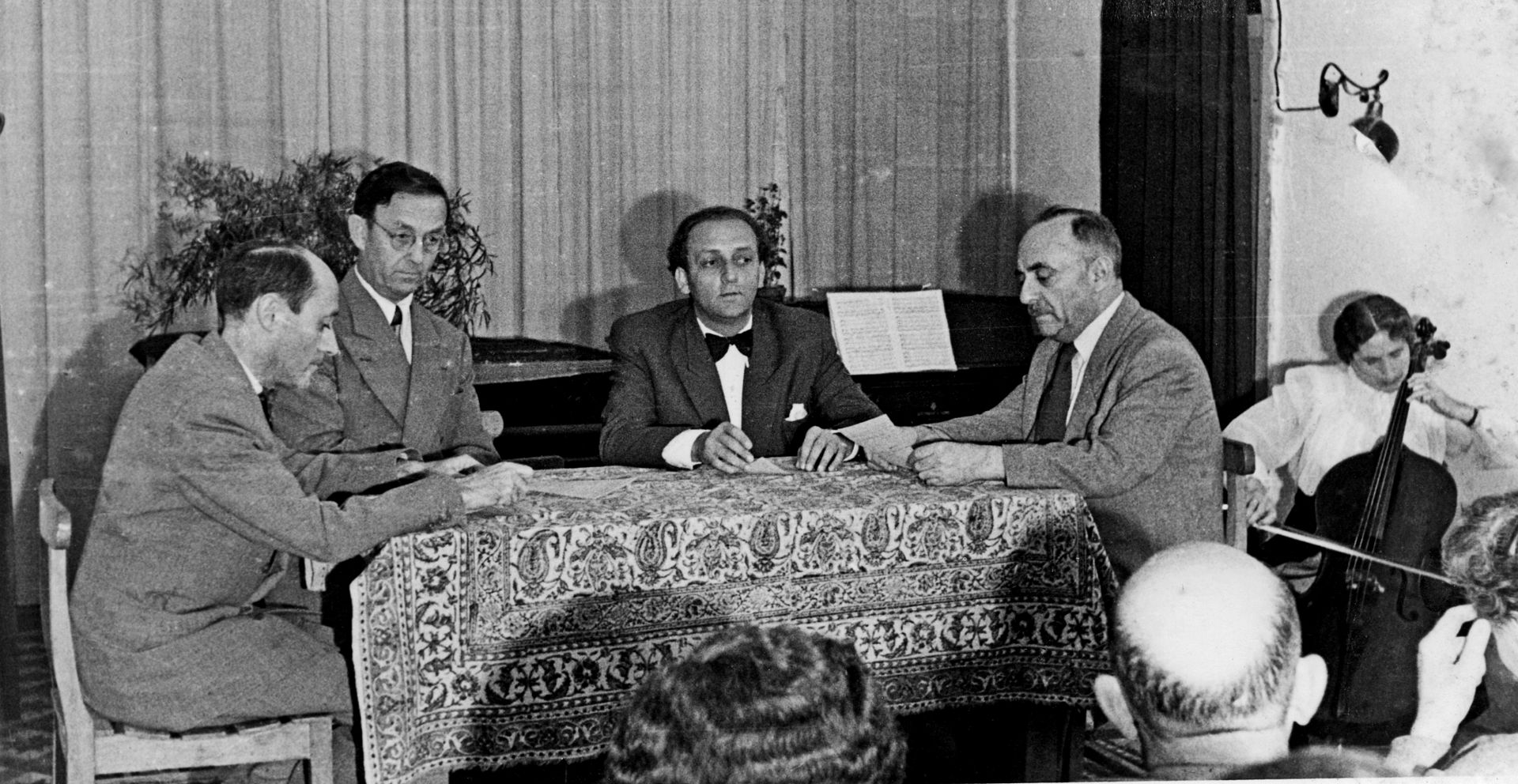Frank Pelleg (1910–1968), an Israeli pianist, composer, and conductor, holds a special place in the landscape of 20th-century classical music. His contributions as a composer and performer helped shape Israeli classical music, blending Eastern and Western musical traditions. Pelleg’s works resonate with innovation, emotion, and deep cultural roots. Below, we explore five of his finest compositions that showcase his unique voice and creative genius.
1. Suite for Strings (1950)
Pelleg’s Suite for Strings is a testament to his mastery of orchestration and his ability to convey emotion through lush string arrangements. Composed in 1950, this work displays an impressive range of textures and moods, from playful scherzos to solemn, meditative movements. Pelleg’s use of traditional folk melodies intertwined with classical European influences offers listeners a vibrant and diverse soundscape. The Suite for Strings remains a staple of Israeli classical music, regularly performed by orchestras worldwide.
2. Divertimento for Chamber Ensemble (1953)
This composition highlights Pelleg’s flair for chamber music and his ability to explore different musical dialogues between instruments. Written for a small ensemble, the Divertimento for Chamber Ensemble captures a rich interplay of rhythm and melody. Pelleg’s playful manipulation of tempo, combined with subtle harmonic shifts, creates a dynamic piece that is both intricate and approachable. It is a delightful exploration of sound, showing his skill in balancing complexity and clarity.
3. Concerto for Piano and Orchestra (1957)
One of Pelleg’s major works, the Concerto for Piano and Orchestra, offers a brilliant showcase of his abilities as both a composer and a virtuoso pianist. Written in 1957, this piece reflects the tension between Israeli national identity and European classical tradition. The concerto is notable for its powerful, expansive first movement, followed by a lyrical second movement that delves into delicate, haunting melodies. The final movement is a burst of energy, bringing the piece to a thrilling conclusion. Pelleg’s unique voice is on full display, merging romantic expressiveness with modern sensibilities.
4. Cantata on Biblical Texts (1962)
The Cantata on Biblical Texts reflects Pelleg’s deep connection to Jewish history and tradition. Composed in 1962, this choral work is based on passages from the Hebrew Bible and is imbued with religious and cultural significance. The cantata is both a spiritual and musical journey, with Pelleg skillfully blending traditional Jewish musical elements with modern harmonies. The orchestral and choral arrangements emphasize the drama and depth of the biblical texts, creating a profound and moving experience for audiences.
5. Song Cycle on Hebrew Poems (1966)
In this late work, Pelleg set a series of Hebrew poems to music, creating a lyrical and intimate composition that resonates with the emotional depth of Israeli culture. Composed in 1966, the Song Cycle on Hebrew Poems captures the essence of the poems’ themes—love, longing, and connection to the land of Israel—through sensitive vocal writing and evocative piano accompaniment. Pelleg’s ability to match music to the tone and rhythm of the poetry is evident, resulting in a work that feels both personal and universal.
Conclusion: A Lasting Legacy
Frank Pelleg’s compositions are a cornerstone of Israeli classical music, celebrated for their integration of Eastern and Western influences, traditional Jewish elements, and modern classical forms. His works continue to inspire musicians and audiences, marking him as one of the most important figures in the Israeli classical tradition. The five compositions listed here are just a glimpse into his vast and varied oeuvre, each reflecting a different facet of his musical identity.


Comments are closed